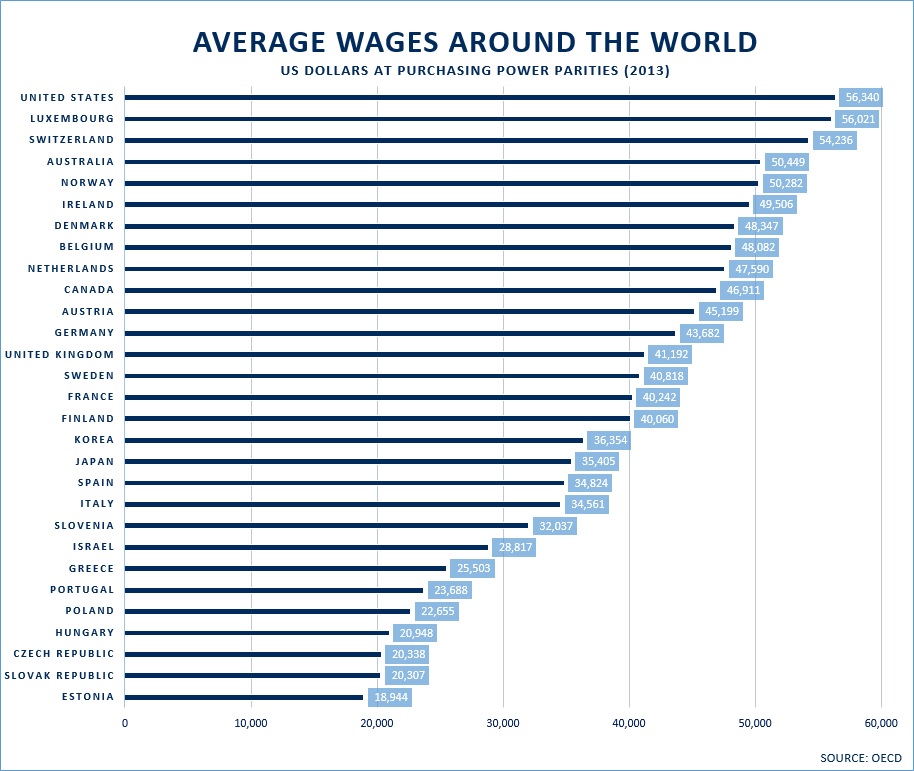What is the average wage around the world?
Stay up to date:
Future of Work
Figures from the Organization for Economic Cooperation and Development (OECD) highlight significant differences in the average wage across its member nations in developed economies.
The United States comes out on top at more than $56,000 per year with Luxembourg a close second, at 2013 purchasing power parity rates (which adjust for exchange rate anomalies.)
Switzerland, Australia and Norway all have average wages above $50,000.
And while EU membership may have brought many benefits to Eastern European nations, they still dominate the bottom of the list with the Slovak and the Czech Republics sitting just above Estonia, where the average wage stands at a little under $19,000.
However that figure is still higher than the overall average salary when all of the world’s countries are taken into account, which the International Labour Organisation has calculated to be $17,760.
To keep up with the Agenda subscribe to our weekly newsletter.
Author: Paul Muggeridge is Head of Content at Formative Content.
Image: A man using his mobile phone stands near a glass window at a building at a Tokyo’s business district. REUTERS/Yuya Shino
Don't miss any update on this topic
Create a free account and access your personalized content collection with our latest publications and analyses.
License and Republishing
World Economic Forum articles may be republished in accordance with the Creative Commons Attribution-NonCommercial-NoDerivatives 4.0 International Public License, and in accordance with our Terms of Use.
The views expressed in this article are those of the author alone and not the World Economic Forum.
Forum Stories newsletter
Bringing you weekly curated insights and analysis on the global issues that matter.
More on Economic GrowthSee all
Aengus Collins
May 14, 2025
Rya G. Kuewor
May 13, 2025
Tea Trumbic and Dhivya O’Connor
May 13, 2025
Navi Radjou
May 8, 2025
Dave Neiswander
April 28, 2025
Alem Tedeneke
April 25, 2025




